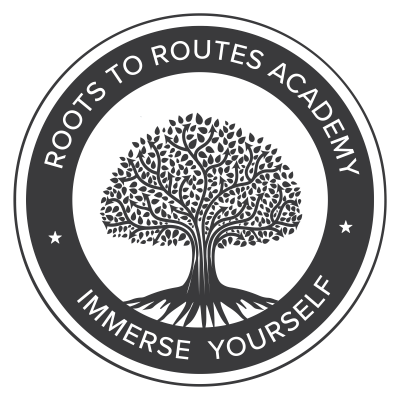Is Math Really Useful in Real Life?
July 4, 2025

At Roots to Routes Academy, we hear this question often, not just from students, but from parents and even educators:
“Is math really useful in real life?”
It’s a common belief, especially in many Black communities across Canada, and it’s deeply concerning.
There’s a growing idea that math is abstract, overly difficult, or simply not relevant to everyday life unless you’re going into a “techy” or “science” career. While that view might seem harmless on the surface, it has serious consequences. It’s not just a mindset problem; it’s a barrier to opportunity.
At Roots to Routes, we believe it’s time to change the narrative with empathy, data, and real-world understanding.
Where the Belief Comes From And Why It Persists
For many students, especially Black youth, math feels like a wall, not a bridge. But the issue isn’t capability, it’s context.
- Underrepresentation of Black professionals in STEM fields, which makes math feel “foreign.”
- A history of classroom trauma; being shamed for wrong answers or left behind in fast-paced lessons.
- Curriculums that focus on memorization, with little connection to real life.
- Cultural conditioning where math is treated as a niche subject, not a life skill.
Many parents didn’t have positive experiences with math either, so they pass on a sense of anxiety to their children even unintentionally. When a child hears “I was never good at math” from someone they admire, it feels like permission to give up.
But giving up on math doesn’t just impact grades. It limits choices, today and tomorrow.
The Real-Life Cost of Avoiding Math
When we tell ourselves that math doesn’t matter, we shrink the future possibilities for our children.
Let’s look at the facts:
- Over 70% of Canada’s fastest-growing occupations in tech, health sciences, data, and trades require strong math skills.
- Black Canadians are significantly underrepresented in STEM, making up only 2.1% of workers in natural and applied sciences, despite being over 4% of the population in major cities like Toronto.
- Financial literacy remains low among Canadian youth, with studies showing that only 41% of 15-year-olds meet the baseline level of financial math skills.
The result is fewer scholarships, fewer competitive job placements and fewer opportunities to build wealth.
If we want our communities to thrive economically and academically, we cannot afford to treat math like it doesn’t matter.
We Use Math More Than We Think

The statement “nobody uses math in real life” is a myth; one we need to debunk, loudly and often.
Here are everyday examples where math shows up:
- Budgeting for groceries, bills, or family vacations
- Understanding credit card interest and managing debt
- Saving and investing, from RESP contributions to homeownership
- Running a business, from pricing products to tracking profit
- Trades and construction, where calculations ensure safety and precision
- Digital design, coding, content performance analytics; all driven by numbers
Even artists, chefs, and photographers use math constantly; they just don’t always call it that. When students realize that, it shifts their mindset. Math isn’t just for “math people”, it’s for everyone who wants to make better decisions.
How Roots to Routes Helps Reclaim Math as a Tool for Empowerment
We don’t believe math is about getting everything right the first time.
We believe math is about:
- Learning how to think clearly under pressure
- Solving problems creatively
- Gaining confidence through consistency
At Roots to Routes Academy, we meet students where they are, and guide them to where they want to be. Whether they’re struggling with math anxiety, trying to catch up after setbacks, or aiming for competitive exams, we provide:
- Real-world context that connects math to their goals
- Empathy-based teaching that heals fear and builds trust
- Representation and community, so students see themselves as successful
We’re not just helping students pass tests, we’re helping them build lives of independence and confidence.
What Families and Educators Can Do to Shift the Narrative
- Stop normalizing fear of math.
Instead of saying “I was never good at this either,” try “It was tough for me, but you’ve got what it takes.” - Highlight the ‘why’ behind math.
Talk about how math helps in entrepreneurship, trades, real estate, and investing. - Celebrate effort, not perfection.
The most important step is showing up. Let kids know it’s okay to get it wrong, what matters is growing. - Share stories of Black excellence in STEM.
From Canadian engineers at Shopify to doctors, designers, and app developers, representation opens doors.
Invest in support early.
With consistent, nurturing guidance, students can rewrite their story with math.
The Future Is Written in Numbers: Our Kids Should Be Holding the Pen
Here’s what we know: Math is not just about numbers. It’s about agency.
It’s about knowing how to make informed decisions, navigate the economy, and step into careers that shape the future. It’s about equity. And it’s about power.
If we want to see more Black youth thriving in boardrooms, labs, classrooms, and their own businesses, we need to stop sidelining math.
Let’s make math a language of confidence and creativity in our homes and schools.
And let’s give our children the tools to not just survive in this world, but to shape it.
Is your child struggling with math? We’re here to help them fall in love with learning again.
Explore our programs at Roots to Routes Academy → https://rootstoroutes.ca/programs/
![]()
Related Posts
We’re So Glad You Made It Here
We know you might still have a few questions or concerns and that’s completely okay. We’re here to listen, to support, and to make sure you have all the information you need.
If something’s on your mind, don’t hesitate to reach out. Just send us a quick message, we’re happy to help.
Once you do, a member of our team will get back to you shortly and you’ll also start receiving our free, value-packed newsletters filled with tips, resources, and insights to support your child’s learning journey.

